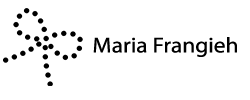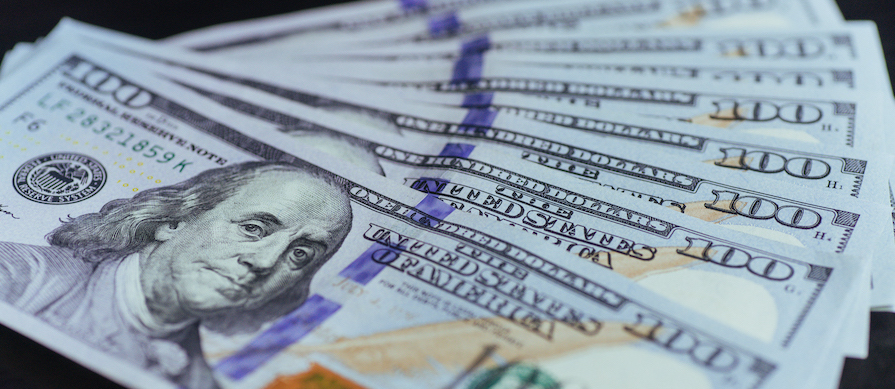The concept of money laundering is the subject of blockbuster films and bestselling works of fiction.
The concept of money laundering is the subject of blockbuster films and bestselling works of fiction. It’s also on the lips of scores of Lebanese: who is and isn’t money laundering and what exactly does it entail? In this edition of Dollars + Sense, we explain how money laundering works and what measures authorities do in such cases.
The Ins + Outs
Simply put, money laundering is when money coming from source X looks like coming from source Y. This is done to hide the origin of money obtained through illegal activity. Laundering money is the process of disconnecting it from the original source (often criminal activity) so as not to face regulatory repercussions –which may or may not include jail time). Money laundering creates a false impression that the money is of legal origin and can be used in regular economic activities. Famous money launderers are the Russian mafia, Al Capone (AKA Scarface). Next spread is a small diagram of how it works.
Goal State
Reasons for money laundering can be classified in two large categories: classic money laundering and modern money laundering.
Classic money laundering happens when traditional criminals (white collar criminals included) don’t want the authorities to find out about their illegal activities so they follow the scheme depicted in the diagram. In this case, a new “business” activity has to be created to “earn” the dirty money. The new “business” can be situated locally or offshore and the type of operation is very critical: it must be extremely lucrative and open the eyes of the tax authorities. The business will run normally during the day, but when accounting for the daily transactions, illicit receipts are fed into the journal as though these transactions really took place. Tax authorities will only see an extremely successful and profitable business. In such cases, tax authorities will be interested in mining the details and further investigating how this business is generating such remarkable profits. In comes the importance of choosing a business activity to make it harder for the tax authorities to find out if money’s source is legal or not. A club wouldn’t be a very wise decision as the booze invoices will show discrepancies. Service-based companies (casinos, antique dealers, jewelers, finance houses, professional advisors, etc…) are the most common business activity for money laundering in the classic sense.
Modern money laundering on the other hand is when you have a large sum of cash that you don’t want anyone to know about. This is when you want to evade taxes, or hide it from someone who might claim it, like an ex-spouse, a creditor or others. In modern money laundering the point is to make the money disappear, hiding it in foreign banks is one example. This happens in two consecutive steps. First you make the money disappear. Second you make it reappear gradually so that you don’t attract the attention of those you are hiding the money from.
Ramifications
Developing countries with growing and developing financial centers are the most attractive for launderers. Differences between national anti-money laundering systems will be exploited by launderers, who tend to move their networks to countries and financial systems with weak or ineffective countermeasures. Developing economies find such capital inflows beneficial since they cannot afford to be too selective about the sources of capital. However, the consequences of money laundering on the economy are far more serious. Money laundering affects the reputation integrity of financial institutions, which will lead to a change in attitudes; boycotting (as an extreme measure), of other financial intermediaries, regulatory authorities and ordinary customers. Furthermore, institutions that allow easy process of funds from criminal activity will draw the institution into active complicity with criminals and become a part of the criminal network itself. From a macroeconomic perspective, consequences of inexplicable changes in money demand, prudential risks to bank soundness, contamination effects on legal financial transactions, and increased volatility of international capital flows and exchange rates due to unanticipated cross-border asset transfers are some possible repercussions. On a societal level, integrity will be damaged as it rewards corruption and crime and democracy and the rule of the law will be undermined. Lebanon was and remains a vulnerable center for launderers, however nowadays the authorities have taken action to limit money laundering in the country. Fighting money laundering and terrorist financing is therefore a part of creating a business friendly environment which is a precondition for lasting economic development.
Checks + Balances in Lebanon?
In June 2000 Lebanon was blacklisted by the international community as a Non-Cooperative Country or Territory (NCTT) since it did not have a full-fledged law against money laundering. The West perceived Lebanon as an active hub for money laundering due to its place as a major financial center for the entire region and the strict banking secrecy policy being applied. The Lebanese authorities took serious antilaundering measures that resulted in removing the country’s name from the blacklist and the birth of the Special Investigation Committee (SIC) under the Law No. 318 of April 20, 2001.
The Committee’s role is to enforce the application of anti-laundering rules and regulations. Cases of money laundering suspected by the SIC are deferred to the judicial authorities and banking secrecy is lifted on the accounts involved. Many reasons exist for suspicion of money laundering such as consecutive transactions of considerably large amounts of money, frequent deposits followed by frequent withdrawals, or large amounts of small bills exchanged for large bills of the same or of different currency. Mohammad Baasiri, secretary of the Special Investigation Committee and the current president of the MENA Financial Action Task Force at the Banque du Liban (the Lebanese Central Bank) admits that there are a number of money laundering attempts in Lebanon today, and referred to the Al Madina Bank scandal as one of them. Until March 2012, many- SIC cases were deferred to the judicial authorities and banking secrecy. Cases are described on the SIC website.
Safe Havens
On June 22, 2000, the Financial Action Task Force on Money Laundering (FATF ) published its “Review to identify non-cooperative countries or territories (NCCTs): increasing the worldwide effectiveness of anti-money laundering measures”. This report was picked up by many of the world’s newspapers with many stories referring to the report as providing a “blacklist” of countries that are negligent in their response and attitude to money laundering.
Although numerous countries have made appearances on the list as of February 2012, currently it is as follows: High-risk and non-cooperative jurisdictions to which counter-measures apply are for Iran and Democratic People’s Republic of Korea. High-risk and noncooperative jurisdictions that have not committed to an action plan apply for Cuba, Bolivia, Ethiopia, Ghana, Indonesia, Kenya, Myanmar, Nigeria, Pakistan, Sao Tome and Principe, Sri Lanka, Syria, Tanzania, Thailand, and Turkey. Jurisdictions with a high-level political commitment to address the AML/CFT deficiencies apply for Algeria, Angola, Antigua and Barbuda, Argentina, Bangladesh, Brunei, Brunei Darussalam, Cambodia, Ecuador, Kyrgyzstan, Mongolia, Morocco, Namibia, Nepal, Nicaragua, Philippines, Sudan, Tajikistan, Trinidad and Tobago, Turkmenistan, Venezuela, Vietnam, Yemen, and Zimbabwe.
So where are you investing your money?


